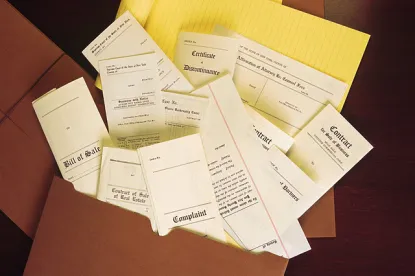UCLA Law School Professor Stephen Bainbridge yesterday highlighted an amicus curiae brief filed recently by 19 law professors in Freidrichs v. California Teachers Ass’n. That case, which is now pending before the U.S. Supreme Court, is concerned with the constitutionality of agency-shop arrangements. The law professors argue:
Because of how capital is saved and invested in corporations, most individual shareholders cannot obtain full information about corporate speech or political activities, even after the fact, nor can they prevent their savings from being used to speak in ways with which they disagree.
They further argue that shareholders do not have “any right to control or direct the use of capital they have invested in a corporation“. In a nutshell, the professors are claiming that corporations are taking money (i.e., hard earned savings) from investors and using it for political spending.
The brief, however, fails to distinguish between investment in a security and an investment of capital in a corporation. When investors buy shares of stock in the public securities markets, their savings typically don’t go directly into coffers of the issuers. That is because investors are most often buying shares in the secondary market. Thus, when an investor buys 1,000 shares of Behemoth, Inc. in the market, his or her seller gets the proceeds, not Behemoth. While the investor in most cases can’t control the political spending of the seller, the seller in most cases won’t be Behemoth. If an investor is truly worried about how his or her savings will be used, it would be far more useful to ask the seller rather than the issuer.
Ironically, the law professors note that most beneficial owners of public corporations are individuals who invest in mutual funds and pension funds. Thus, the idea that corporations are using the savings of these individuals to engage in political speech is even more attenuated.
Admittedly, some investors do buy securities directly from issuers (e.g., in a private placement). However, these are voluntary transactions in which an investor can choose to “opt in” by buying shares. They are fundamentally different from the case of a non-union member who must choose to “opt out”.



 />i
/>i

